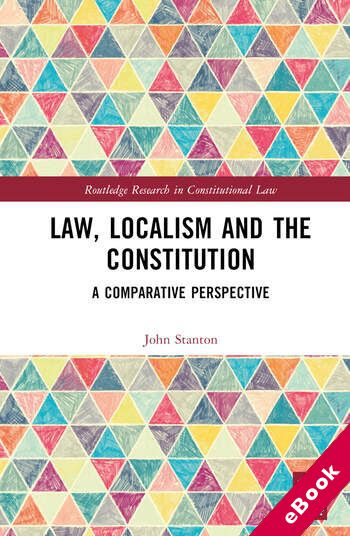
The device(s) you use to access the eBook content must be authorized with an Adobe ID before you download the product otherwise it will fail to register correctly.
For further information see https://www.wildy.com/ebook-formats
Once the order is confirmed an automated e-mail will be sent to you to allow you to download the eBook.
All eBooks are supplied firm sale and cannot be returned. If you believe there is a fault with your eBook then contact us on ebooks@wildy.com and we will help in resolving the issue. This does not affect your statutory rights.
Local government affects us all. Wherever we live, in towns, cities, villages or in the smallest of communities, there are locally elected councils tasked with representing people’s interests in the running of the local area. This involves, inter alia, providing public services, maintaining local spaces and acting as a level of democratic governance within the broader constitutional and executive structure of the state. To fulfil these responsibilities, though, local government must be democratically legitimate; it must have at its disposal reasonable means and resources to function; and it must enjoy a healthy and balanced relationship with central government.
This book explores and analyses the extent to which local government in the different parts of the UK is able to function effectively and democratically. It draws from local councillors’ views in analysing the state of local government under the current constitutional and governmental arrangements, discussing issues such as councils’ relationship with central government; citizen engagement; finance and public services; and the impact of recent reforms. It contrasts and compares the different approaches adopted in England, Scotland, Wales and Northern Ireland, also setting out and discussing possible reforms of local government in the United Kingdom. While the focus is on the UK, the work includes a comparison with other relevant jurisdictions.